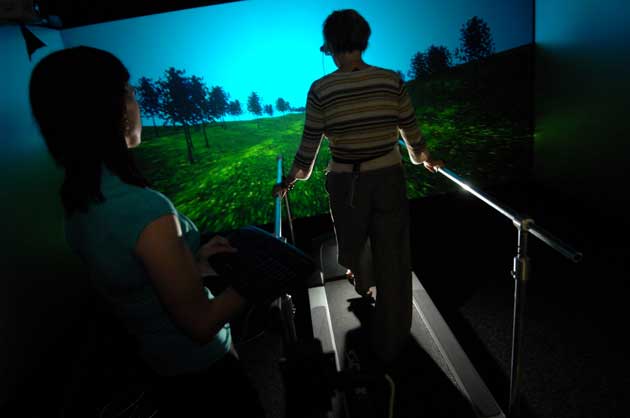Stroke sufferers take virtual road to recovery

Your support helps us to tell the story
From reproductive rights to climate change to Big Tech, The Independent is on the ground when the story is developing. Whether it's investigating the financials of Elon Musk's pro-Trump PAC or producing our latest documentary, 'The A Word', which shines a light on the American women fighting for reproductive rights, we know how important it is to parse out the facts from the messaging.
At such a critical moment in US history, we need reporters on the ground. Your donation allows us to keep sending journalists to speak to both sides of the story.
The Independent is trusted by Americans across the entire political spectrum. And unlike many other quality news outlets, we choose not to lock Americans out of our reporting and analysis with paywalls. We believe quality journalism should be available to everyone, paid for by those who can afford it.
Your support makes all the difference.It may look like a futuristic video game, but this virtual reality treadmill could hold the key to rebuilding lives for stroke and injury sufferers.
A scientist at Portsmouth University has developed technology that can speed up recovery for patients by tricking them into believing they are moving more slowly than they actually are.
Moving images on a giant screen respond to patients' efforts on an adapted treadmill, encouraging them to move faster and further than they might ordinarily progress.
Using a variety of different settings, including urban and woodland landscapes, the device creates a virtual world for the patient to "walk" through on the treadmill. This immersion also acts as a distraction, and early research has shown patients using it have a decreased perception of pain.
Wendy Powell, the researcher at Portsmouth University who developed the software, said: "The virtual system encourages patients to walk more quickly and for longer, almost without them realising it.
"It's not just that they're distracted from the pain; by moving faster than they realise, their body actually feels it less. We're effectively fooling the brain and cheating the body.
"It's a lot more fun than traditional rehab and it can actually facilitate a much faster recovery. Our test subjects are usually surprised when I tell them they've improved by up to 20 per cent."
Clinical trials on patients are taking place in collaboration with McGill University in Canada and early results are said to be encouraging.
Stroke sufferer Andy Long, 61, has been using the technology as part of his rehab and describes it as "magic".
"The vast majority of stroke survivors cannot use a normal treadmill because they are not in control. Many can only hold on with one hand, making it almost impossible," said Mr Long. "Walking is the best possible exercise for their bodies, and this system means it could all become available to them."
Join our commenting forum
Join thought-provoking conversations, follow other Independent readers and see their replies
Comments